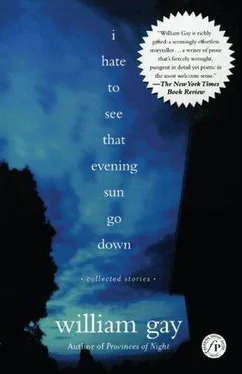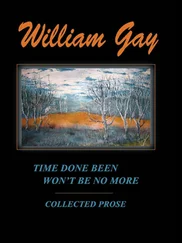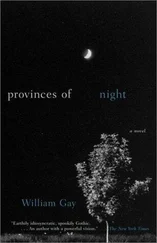He felt the sensation he always felt when he crossed the property line, as if he had swung from one dimension to another. Here the earth lay in ruins. Scraped raw and bloody by the blades of bulldozers, trees dozed into long curving windrows and burned. They burned for days, for weeks, and smoke still rose in columns like council fires and hot ash drifted in the unwinded twilight.
He followed the roadway back the way the truck had come. The road steadily descended and as far as he could see the world was laid to waste. To his left hand lay the Indian mounds the archaeologists from Knoxville had disinterred and on his right he could see the concrete pylons of the dam rising out of the earth and he judged it near completion. Time was getting away from him and he suspected that the government’s patience was wellnigh exhausted.
All day the trucks hauled stone for the riprap and all day the earthmovers took on earth here and disgorged it there and packers wore the earth hard as stone. Enormous armies of machinery toiled over the earth like insects and somewhere out there in the mauve dusk the river, not yet tamed, its course not yet altered, rolled on toward the sea the way it had always done.
Here Bender stood. His grandfather had long ago deeded this land to the church but it did not belong to the church now. The cemetery lay on a rise not yet leveled and his feet remembered the path and he walked a path not even here anymore, that had been hauled away for backfill. He wandered this vacant cemetery like a visitor come to call and there’s no one home.
Crude oblong holes dug deeply into the earth. Rectangles of dark leaking upward from some ultimate dark. Bits of wormscored wood, shards of bones, nameless dross. The stones still stood amidst the savaged sassafras trunks, leaning weather-thinned tablets and carved marble angels with folded wings and graven names and dates. Some of the names said Bender.
He sat there for a time smoking while the dusk deepened and nightbirds began to call to him out of the purple dusk. When he rose he looked instinctively to where the church had stood as if to see if it had been miraculously restored but of course there was no church nor anything at all that he recognized anymore.
I EXPECT WE NEED TO TALK, Lynn told him.
I expect we do, Bender said. He’d been watching her and he always knew when she thought they needed to talk.
Did you know old man Liverett took their offer?
No.
I guess you’re the last one left now.
I’ve always been the last one left, Bender said.
They ate supper in silence and Bender gathered up the dishes and washed them while Lynn played with Jesse. He washed the dishes as if this simple act might placate her, might be so far-reaching as to placate the very government that was stirring itself to move against him.
They sat on the porch in the swing awhile. The weathered wood seemed somehow to draw out what coolness the dusk held. Everything about the house was wood from the sills to the shingles, cypress and chestnut Bender’s grandfather had cut and hauled to the sawmill in a mule-drawn wagon. He had built the house himself and time had settled it and silvered the wood until the house seemed something organic that had just grown out of the earth, something that had always been there and that man had had nothing to do with. Honeysuckle grew all around the house and its vines climbed nigh to the roof itself. Full dark was falling and was intensifying the scent of the blossoms until the air felt drugged, some sweet narcotic that had sung in Bender’s blood all his days.
His three-year-old son Jesse was dozing on his lap with his blond curls against Bender’s chest and Bender’s arms loosely clasped about his waist. The boy was a wonder to Bender. Even the small things about him, the way his face looked subtly different when the light falling on it altered, as if here was an entirely different Jesse. Bender loved him so it scared him sometimes, and not because Jesse was some scaled-down and newly minted edition of Bender but a new and separate individual, innocent and unmarked as yet by the world.
He must have tightened his grip more than he thought for the child awoke and slid down Bender’s legs to the porch floor. Go shoot some wolves, he said sleepily.
Well all right, Bender said. Let’s waste some of them suckers. He figured the game would last awhile, perhaps even until Lynn was asleep, postponing the need to talk.
He did not even suspect where Jesse had come up with the game but it might have been from something he had seen on television or something he had heard someone say. They had been playing it two or three months and lately it had become every night’s ritual.
All the game required was two black plastic popguns and Bender and his son crouched peering through the sliding glass door into the backyard. Past the flagstone patio and where the porch light tended away into darkness the woods began and this was where the wolves came from. Jesse would point one out and Bender would pretend to see it and shoot it and then Jesse would kill one. There, he’d say, raising the rifle and sighting down its barrel: bang. Sometimes they would kill wolves for upwards of half an hour before Jesse wearied of the game, sometimes only one or two each would suffice. One of the rules seemed to be that they both had to kill the same number of wolves.
Tonight he was sleepy and grew bored with the game early. When he was asleep in his room and Lynn was undressing for bed she said:
What are we going to do?
Wait it out a few more days.
We can’t wait it out. We’ve gone as far as we can go. Something has got to be done.
Bender was standing by the window with an outspread palm on the frame and he was just looking out into the darkness. The EPA is going to shut the goddamned thing down and you know it.
I don’t know any such thing. Nothing is going to shut it down. Nothing. All this is going to be underwater and I don’t know why you can’t see that.
Bender watched the dark and thought about that awhile. He thought about the slow seep of water rising, first his shoe soles dampening and the summer dust going to mud and the water cascading over the lips of the barren graves and rising more until the mimosa fronds trailed in the deep like seaweed. The dam looked to be at least eighty feet in the air and Bender guessed the water would rise for days, for weeks, who knew.
That goddamned fish, Bender said.
What?
I was thinking about that goddamned fish.
Just come on to bed, David.
Bender got into bed with all his clothes on and then noticed his shoes and got back up and pulled off his shoes and socks and lay back down with his hands clasped behind his head. She touched his face, let her arm rest across his chest. David, she said, baby, I know what all this means to you, but—
Bender lay there not listening. Nobody knew what all this meant. He felt an enormous sorrow for the inadequacy of everything. For everything that was said, for everything that was done. There in the dark Lynn kissed his throat and tried to draw him to her. She was trying to comfort him in the only way she knew but dread lay in him heavy as a stone and Bender would not be comforted.
SOMETIME IN THE NIGHT Bender awoke and lay staring at the ceiling above him and thought about the fish. There for a while he had had high hopes for the fish.
He had first heard of it months ago. He had been keeping his eyes open and he had known something was up when he had seen a news crew from a Nashville television station interviewing folks wearing hardhats over by the main gate. Then a night or two later he had seen the fish itself on the evening news being discussed by an earnest-looking young man in a pith helmet. The fish was about as ugly a thing as Bender had ever seen, angular and goggle-eyed and atavistic as something which had simply decided not to evolve. It was called a snail darter and the interesting thing about it was that it seemed to thrive nowhere in the known universe save in the riverbed not three miles from Bender’s farm.
Читать дальше












